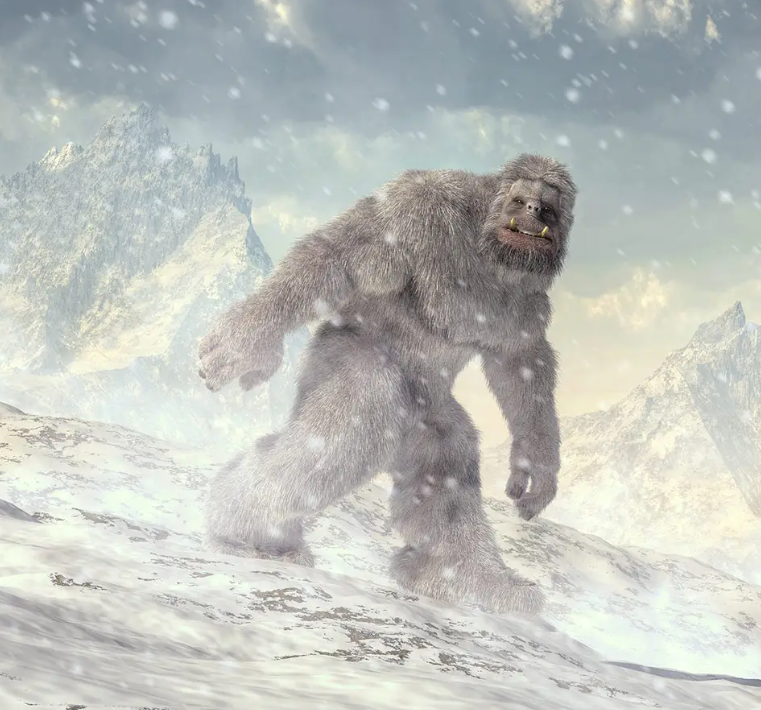

Cryptozoology is the study of creatures whose existence is disputed or unsubstantiated. However, while the existence of animals like the Loch Ness Monster or the Yeti is not proven, neither has it been categorically disproven.
In this course, you’ll explore theories and explanations from scientists and cryptozoologists. You’ll see arguments that both support and undermine the evidence for fantastical creatures. By the end of the Cryptozoology Diploma Course, you’ll be able to decide whether lake monsters, sea serpents, Thunderbirds and other mythical monsters are rumours or a reality.
The course opens with a definition of cryptozoology. It then goes on to look at what differentiates a cryptozoologist from others who study animals in the science community. You’ll be introduced to numerous famous cryptids, and see that many other creatures in the natural world were once thought to be fantastical too.
From this introduction, the course guides you through an in-depth exploration of various cryptids. Each is allocated a module of the course to ensure thorough examination. The Cryptozoology Diploma Course includes the Loch Ness Monster, the Kraken (and other sea monsters), giant anacondas, Bigfoot, the Yeti, El Chupacabra, Thunderbirds, Mothman, and more.
You’ll be taken through the history of Loch Ness Monster sightings, from the sixth century up to the present day. Want to know what prompted ‘Nessie mania’ in the 1930s? You’ll be introduced to the various photos and ‘proofs’ that were revealed during that period. There’s a section that covers the usual theories and explanations that are offered up about the existence of a monster in the Highland lake. The course also provides details concerning a few other water beasts believed to inhabit other lakes across the globe.
Following this study, you’ll be introduced to an old Norse sea monster, the Kraken, as well as other cryptids of the sea, such as sea serpents. The course highlights some of the more famous sightings of such animals. It also discusses the sceptics’ argument on what these really are.
You’ll then be guided through folkloric tales of the existence of a giant anaconda, before exploring reported sightings. One enormous type of anaconda truly does exist!
The Cryptozoology Diploma Course then explores the beginnings of the Bigfoot legend. It discusses modern sightings of the creature, describes what a Bigfoot actually is, and explores the two sides of the Bigfoot question: “Can we really believe in its existence?”.
Anecdotal evidence has been gathered over the years about an unknown human-ape surviving on the highest peaks of the world – the Yeti. The course explores the origins of the Yeti story, and what popularised it within the West. From there, you’ll go on to explore the details of the various Yeti sightings that have occurred since the 19th century up until more recent times. The theory propounded by Yeti hunter, Reinhold Messner, that the Yeti may be real – just not in the way that we think it is – is covered too.
El Chupacabra is a creature said to have terrorised the Puerto Rican countryside, killing livestock and other animals. The course looks at all we know about this monster, starting with a description of the creature, its behaviour, and details of how it got its name. From there, you learn of the various sightings and incident reports that made the creature famous. We’ll then address a primary belief about the monster as offered up by one of the main Chupacabra investigators.
The Thunderbird is a central part of Native American folklore and culture. It’s been witnessed by pioneers of the Wild West right up to city dwellers in more modern times. The Cryptozoology Diploma Course introduces you to the most well-known of these stories and sightings. You’ll also look at the theories that surround this creature’s existence.
Mothman is a slightly different kind of monster, as there are many who believe that it is somewhat supernatural. You’ll discover the legend of Mothman, where and how it started, as well as the other sightings of the creature across the globe. Finally, however, you’ll be left to draw your own conclusions as to whether the legend of Mothman is true, false or out of this world.
The course concludes by examining the obstacles that cryptozoologists face while hunting for unknown animals. In doing so, it also explores one surprising factor that may keep the field of cryptozoology alive and well – tourism.
By the end of the course, you will:
What will I learn on the course?
Whether you’re undecided about the existence of cryptids or your mind is set, this course will give you a firm foundation. You’ll understand how stories about these particular creatures were created or evolved, and see what makes them particularly attractive to those searching for new species.
You will learn about the various sightings of these monsters. Some have since been rationally explained, and others remain a mystery. You will be introduced to some of the more well-known cryptozoologists along with the works that they have written on the subject. Most of all, though, you will be left to come to your own conclusions about the many wondrous beasts that are – or are not – out there somewhere on our vast planet.
There are no reviews yet.
You must be <a href="https://wislibrary.net/my-account/">logged in</a> to post a review.